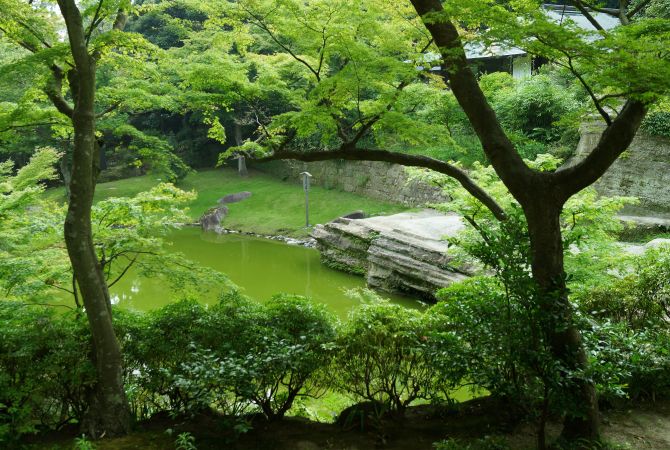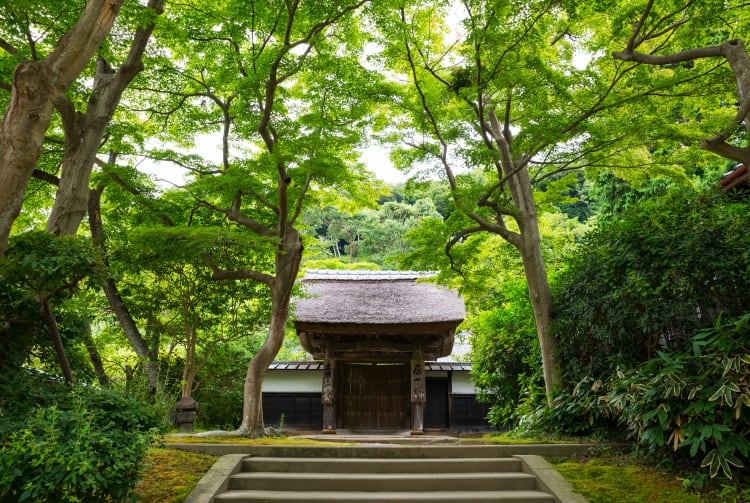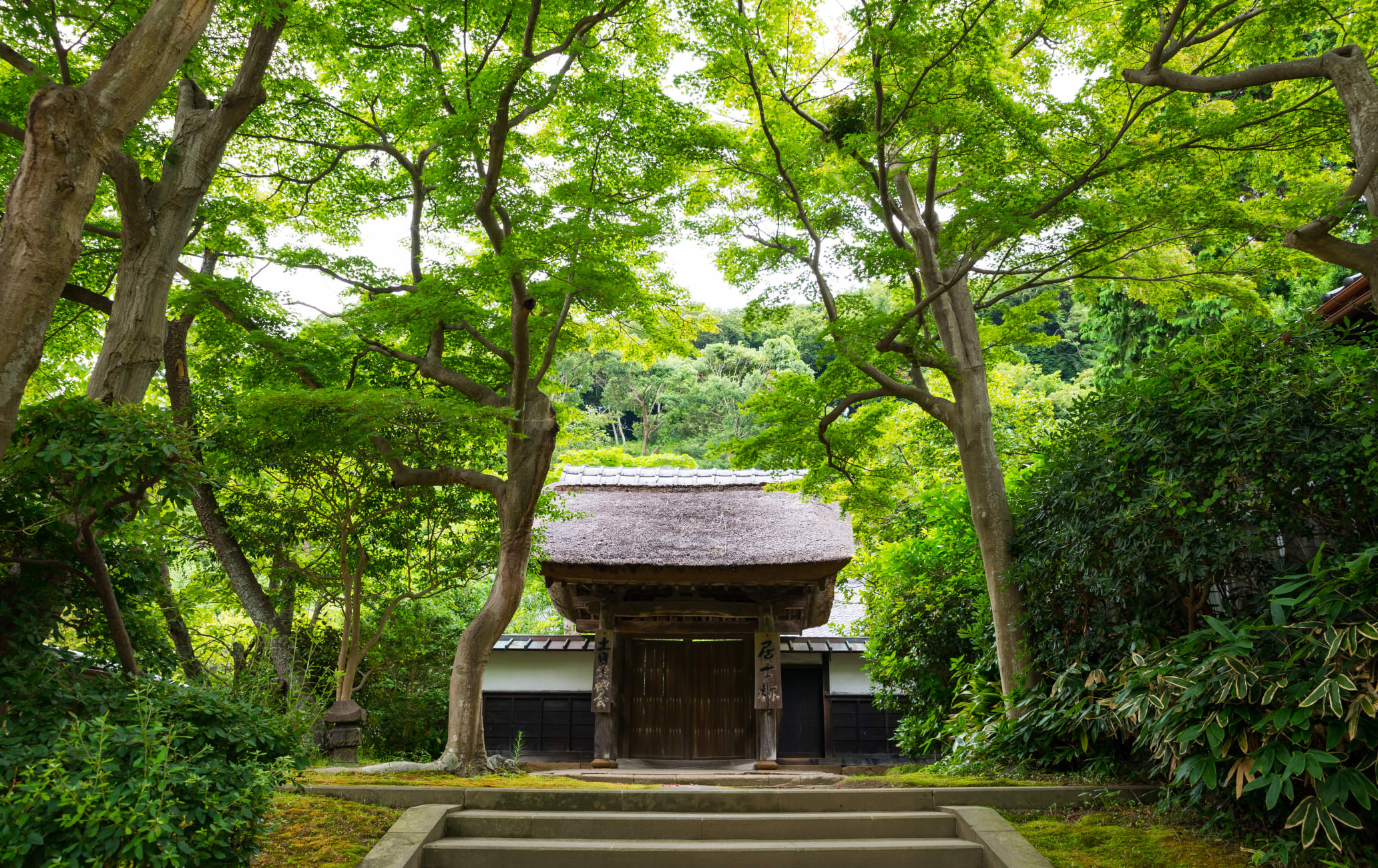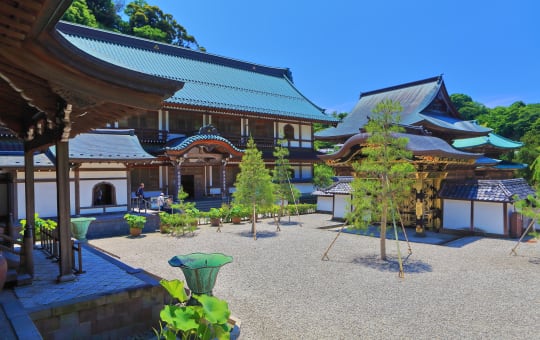One of Japan's most important Zen temples
Engakuji Temple was established in 1282 to commemorate those who gave their lives fighting off the Mongol invasions of 1274 and 1281. It quickly became one of Japan's key Rinzai Zen temples, a position it still holds today.
It is also popular among locals and travelers as a place to enjoy the deep red of the autumn maple leaves, and it is frequently crowded in early December when the trees are in full flush.
How to Get There
Engakuji Temple is a one-minute walk from JR Kita Kamakura Station, one stop north of JR Kamakura Station on the JR Yokosuka Line.
Quick Facts
Engakuji was founded in 1282 by the regent Hojo Tokimune
Zen meditations are held in the morning of the second and fourth Sunday of the month
In the autumn, the Japanese maples on the temple grounds turn a deep red, making it a top spot for leaf-peeping




National Treasure designation
Parts of the temple have been designated National Treasures by the government, including the Shariden Hall, where the Buddha's bones are said to be enshrined. The massive temple bell, cast in the 14th century, hangs near the gate. The Shozokuin building, which has stood since the founding of the temple, is still utilized for its original purpose of training monks.

Important cultural properties
Given the temple's importance and ongoing role within contemporary Buddhism, it is not surprising that not all areas are open to the public. The Shariden Hall is only open to the public for three days in November including Culture Day (which varies from year to year), but gaining access is difficult due to the enormous crowds that come there to pray. For the rest of the year, visitors have to make do with glimpses from afar.
Try meditation with the monks
Go early on a Sunday morning to participate in the Zen meditations held here (6am-7am). Sessions are conducted in Japanese.





























































